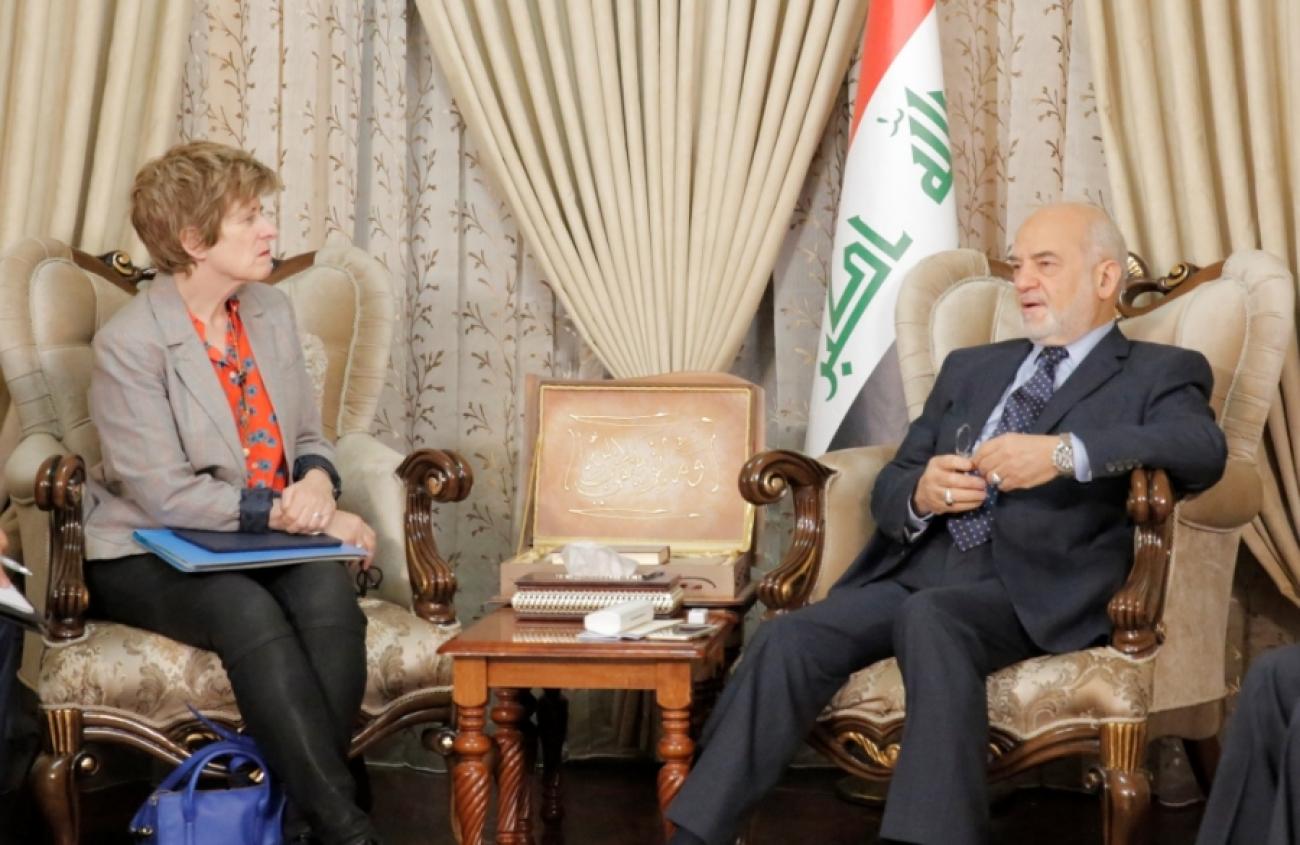Continuing her official visit to Iraq, the UN Deputy High Commissioner for Human Rights, Ms. Kate Gilmore, met separately in Baghdad on Monday 18 April 2016 with the Minister of Foreign Affairs, Dr. Ibrahim Al-Jaafari, as well as representatives of Iraq's diverse religious and ethnic communities, as well as human rights activists representing women and people with disabilities.
The Minister informed Ms. Gilmore that Iraqi civilians are being subjected to serious human rights violations on a daily basis at the hands of ISIL (Daesh), while many continue to suffer from the crimes committed by the former regime. The Minister called for greater action by the international community to ensure the accountability for the perpetrators of these crimes and for greater support for the Government and people of Iraq to defeat the Daesh and to ensure justice for the victims.
Representatives from the Sunni community discussed ways of ensuring their voices will be heard in community and national reconciliation processes. Representatives of the Christian, Turkmen, and Shabak communities, emphasised the importance of providing assistance to the victims of human rights violations, the need to ensure that those who have been displaced can return to their homes in safety and dignity, and the need for policies to be implemented that will ensure the respect for their rights and provide them with economic and physical security for the future so as to stem the continuing flow of members of their communities from Iraq.
Members representing women’s organisations stressed the need for legislation and policies to combat violence against women and to ensure women’s full and equal participation in the political and economic life of Iraq.
Representatives of people with disabilities highlighted the discrimination and hardships they face in their daily lives accessing basic services that are available and accessible to other Iraqi citizens, as well as noting the disproportionate impact that armed conflict and violence is having on members of their community.
Ms. Gilmore expressed her sincere compassion for the people of Iraq for the suffering they have endured from decades of human rights violations – but stressed the importance for the Iraqi people not to focus solely on the tragedy of the past – but also to consider what actions may be taken to address ongoing human rights violations, assure accountability, and to promote the respect for the rule of law and the rights of all of Iraq’s people without discrimination as the best means to ensure a prosperous, peaceful and inclusive future for the country.
“Memory is long, but vision can be short”, Ms. Gilmore said. “The Iraqi people have truly suffered from horrendous human rights violations and abuses that are almost unparalleled. However, for Iraq to move forward, it is essential that all Iraq’s people, irrespective of ethnicity, religion, gender, disability, or other distinctions, are involved in a dialogue to agree on ways that true community reconciliation to build a lasting peace can be achieved. This path will not be easy, but there must be care and support for the survivors of violations and other vulnerable or marginalised groups, accountability for the perpetrators of crimes, and dialogue to build a common vision that is inclusive of all Iraq’s people and that promotes human rights and respect for the rule of law for the equal benefit of all Iraqis. This will be the best guarantee for a stable and prosperous future for all Iraq’s people, irrespective of their differences.”



